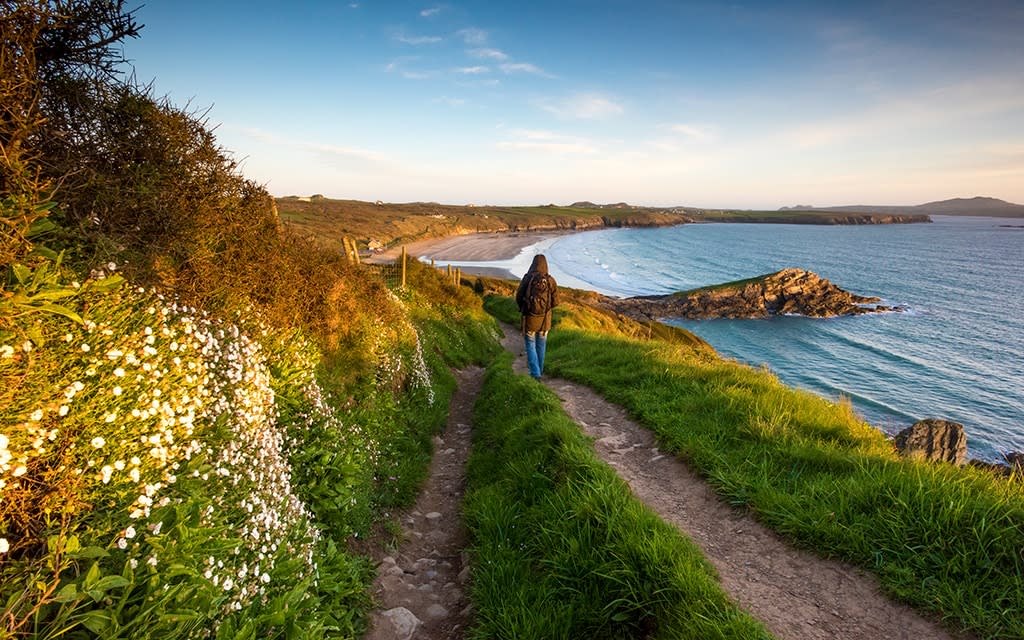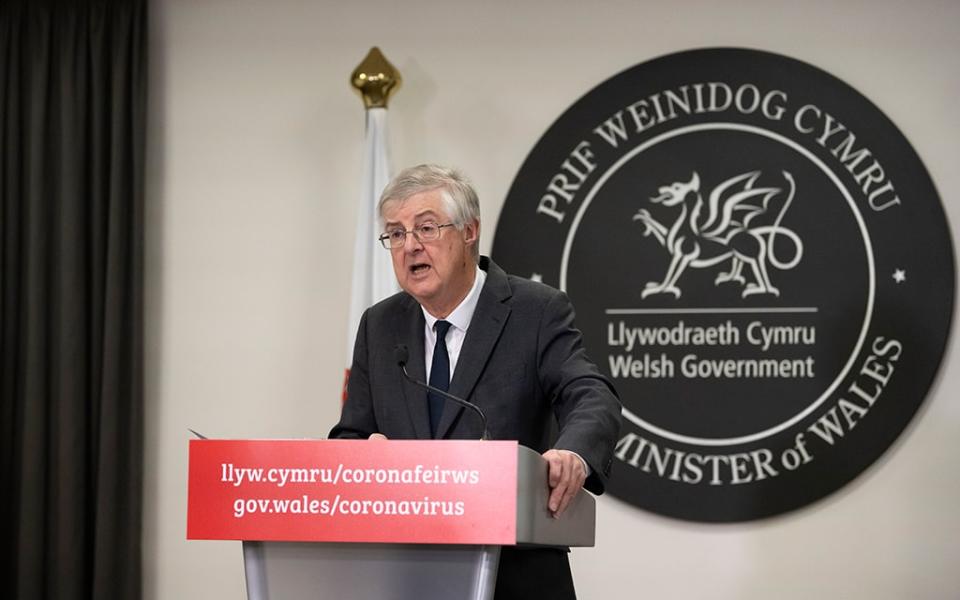Second lockdown is 'the final nail in the coffin' for tourism in Wales

On the surface of things, it is business as usual in Hay-on-Wye of literary festival fame. Yet there is undeniably dejection in the air. A weary, worrisome sense of déjà vu.
When Welsh first minister Mark Drakeford announced that the country would be going into a ‘firebreak’ lockdown on Friday, October 23, nowhere were his words felt more keenly than in this town straddling the Welsh-English border. Like elsewhere in Wales, the hospitality industry here will be forced to close for at least 17 days, missing out on the vital lifeline of half-term trade. And to rub salt into the wound, their neighbours over the border in Herefordshire will most likely be able to remain open, observing the three-tier, rule-of-six system.
“We opened our business earlier this year and did not qualify for government grants so relied solely on bookings taken in between lockdowns,” says Dawn Farnworth, owner of new eco-conscious glamping escape, By the Wye. “Our luxury riverside safari tents were fully booked for the holidays, with families desperate for a getaway. Regrettably we’ve had to cancel these bookings, with financial recompense unlikely. If we truly believed this firebreak would work then it would be a bitter pill we would swallow, but all the evidence is conflicting, especially given the fact our English neighbours half a mile away are not being placed under the same restrictions.”
The ‘firebreak’ comes in response to an increase in cases of Covid-19 in Wales, with almost 1,000 recorded on Sunday, tipping the national seven-day average beyond 130 cases per 100,000. The latest lockdown will mean the closure of all non-essential retail and hospitality, as well as a ban on socialising between households. But for many businesses already on the brink, the new restrictions are a bitter blow. And there is widespread concern that this might turn into a rolling lockdown, which would be financially devastating for the rural economy.
Heading south to the Wye Valley and the border town of Tintern, whose abbey ruins inspired Romantic souls like Wordsworth and Turner, the situation is much the same. “We will find it very hard to bounce back after this lockdown,” says Ed Biggs, owner of Kingstone Brewery and Hop Garden glamping site. A lot of businesses are just starting to recover and this time of year is very important – the last busy period before the seasonal rush. It is questionable whether the lockdown will address the root of the problem.”

Ashford Price, chairman of the National Showcaves Centre for Wales in the Brecon Beacons, echoes this sentiment: “Since the first week in September when the schools returned it has been very quiet in the Brecon Beacons, what with all the uncertainty and people being told not to come to Wales. Losing the two half-term weeks is the final nail in the coffin for tourism here, and there are rumours that the Christmas and February school holidays will be affected, too, taking us all the way up to Easter 2021.
“Two weeks is too short a period to have any effect whatsoever. I’m sure the Welsh Government has the best intentions to safeguard the country, but this is decimating the tourism industry in Wales, which is the country’s second largest industry, employing around 100,000 people – 10% of the workforce. Take this away in rural areas and the job prospects for locals are nil. The leisure and hospitality industry has spent a fortune on ensuring all the correct safety and social-distancing measures are in place and now we are back to where we were in March. It’s a real kick in the teeth.”

Some believe that the firebreak lockdown should only apply to regions with high levels of infection, or that Wales should have adopted a tier system similar to the one in England.
“Pembrokeshire has one of the lowest infection rates in Wales [32.6 per 100,000], which is testament to the measures local businesses put in place during two of the busiest months we've ever seen,” says Jane Baynes-Rees, chairperson of Pembrokeshire Tourism. “But with the restrictions on England Tier 2 and Tier 3 residents coming into Wales, cancellations increased and bookings decreased markedly, as no one likes to book in uncertain times. Hopes of an autumn season have disappeared. Closures are thankfully minimal at the moment, but a notable one in the area is the Imperial Hotel in Tenby, and unfortunately we are likely to see more business casualties before spring 2021.”
In Fishguard on the North Pembrokeshire coast, it is, like elsewhere in Wales and across the UK, the small, family-run businesses that have been hit hardest. “We were going to be really busy over half-term but not now,” says Chris Sheldon, owner of the Manor Town House. “I can see why the government is being cautious, particularly with winter approaching and pressure mounting on the NHS, but it’s a shame we couldn’t have got through until November. And if it doesn’t work, where do we go from here?”
Paula Ellis, group general manager of three luxury boutique hotels in Pembrokeshire, Twr y Felin and Penrhiw Hotel in St Davids and Roch Castle near Newgale, is wondering exactly the same thing. “We’re trying to be strong and keep the business afloat, but what will happen when we fall off the financial cliffs when furlough ends on 1 November?” she asks. “I can understand the need for lockdown on one level, but it is important to recognise that those in the hospitality industry are masters at keeping people safe. As it stands we are wondering how we are going to be supported to limp along until spring 2021.”
Like many in the Welsh tourism industry, Paula believes that there ought to be a differentiation between regions with low and high levels of infection. “If we could only keep small regions with low rates of infection open, such as Pembrokeshire, Ceredigion and Monmouthshire, this would send out the message that Wales is friendly, welcoming and still worth visiting,” she says. An important message – and one the Welsh tourism industry needs more than ever.
How has your business been impacted by Covid? We want to hear from you. Get in touch with us here.
Do you work in the tourism industry in Wales? Let us know how a second lockdown will impact your livelihood in the comments section below.


